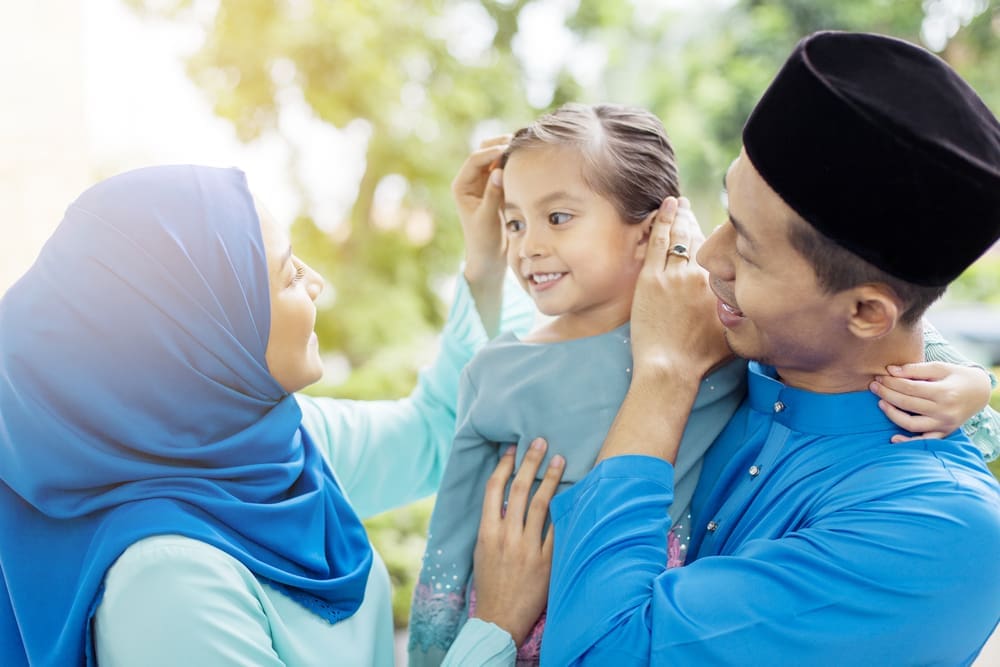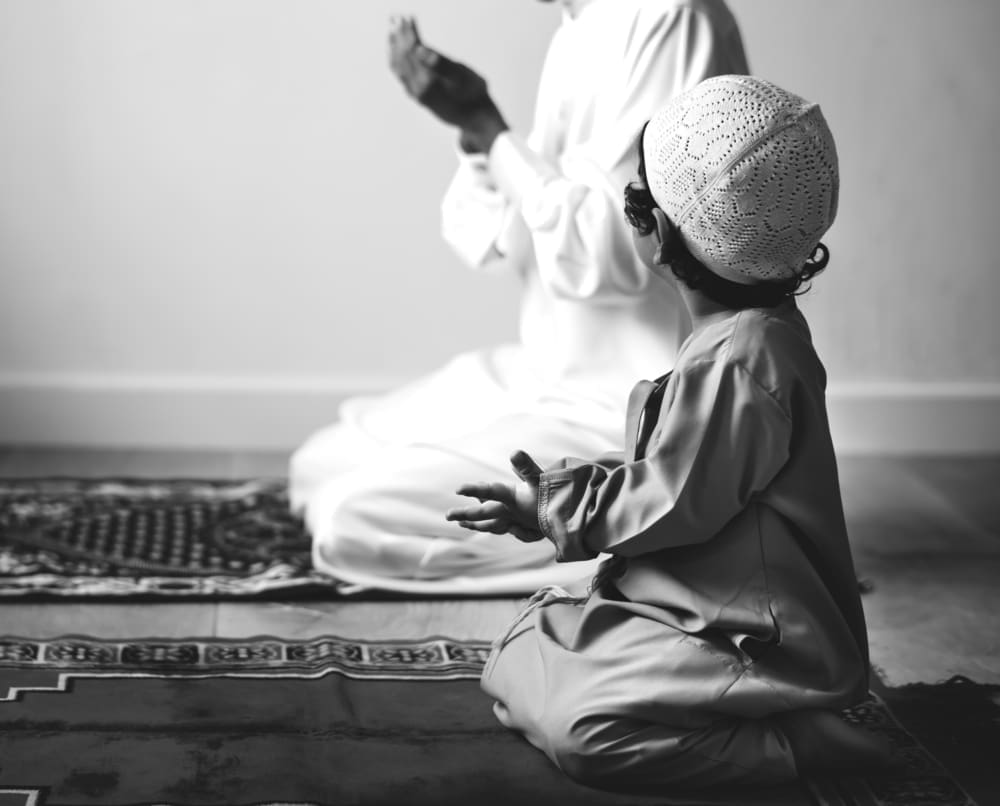Cultivating A Tawakkul Mindset In Your Kids

Tawakkul means reliance on Allah subhana wa ta’ala (swt).
If we want true success and confidence in our parenting, we need to first have a strong attachment to our Creator, Maker, Supporter and Assister. That true reliance, attachment, love and trust must be from the source of the Giver, the most merciful of those that show mercy.
Your child already has a fitra that recognizes Allah swt. What I need most is sometimes to remind me of the fitrah upon which Allah has created each child. I try to gaze into young children’s eyes especially my youngest Dawood at 2 years and Shuaib at 8 years old and when I am speaking to them, somehow I can feel the inner warm light despite the outer chaos.
The most wonderful moment is when I connect to this and I realize that I am not here to instill something inside them; it is already there. Not only is it there, but it is much more integrated into the personality of the child than it is in me. I have layers of stories, opinions, labels whereas my child is who he is in his natural fitrah. Authentic. Vulnerable. Real.
When something doesn’t sit well we have to trust ourselves, our intuition. In society, we are not taught to trust ourselves or learn and grow by our fitrah.
We’re taught to trust others or facts, statistics, government, data which are all man-made. Intuition and insight come from Allah’s guidance that each of us has access to. We ask for it over 17 times a day in prayers. Are we listening to it or do we squash it when it comes up? This is the foundation of teaching children tawakkul. Trusting and relying on Allah’s promise and connection with us through thought, consciousness and mind.
Tawakkul is accessible and available for all humans.
We must recognize and pass the message to our children that sometimes life will be hard and struggle will come our way, and as imperfect creations of Allah swt, we need to turn to Him in all conditions as we are limited by our ability and can’t do things alone without His help and permission.
Encouraging them for any good deeds they do.
Explain the consequences of their actions, there is a repercussion of all our actions. But encourage a more positive style of encouraging connection. It’s not about the result, it’s about the process.
Positive reinforcement will usually increase a positive good action or behavior.
The positive exhortation is desirable to children. Attachment to the Qur’an increases until they reach a high degree of love and approach the Qur’an out of their love not out of fear of commands or rebuke. This is so important. Many children get turned off salah and Qur’an and acts of worship because it’s based on fear and harshness. Especially if your child is under eight years, no forcing or getting upset if they don’t do acts of worship. This is a special age of showing young children compassion and mercy. Connect them to acts of worshipping Allah swt from a place of positive emotions. Examples include:
-
-
- Storytelling the many stories of the prophets, Companions of the Prophet Sahabah, heroes of Islam in short circles together on the ground to evoke connection and emotion for their legacy.
- We are given just a few moments in this Dunya. Each breath is a priceless jewel and when it passes it never returns…make this moment, this breath, this heartbeat one that resounds with Ihsan (Excellence)! Get your children to connect to this beautiful connection to Allah swt. Remind them of standing in front of Allah (SWT) on the Day of Judgment and having Him tell you all the things that you did that He LOVED. Imagine how you would feel? Get them to imagine how they would feel. Get them to visualize this moment and connect to this day. Get excited with them that this is real.
-
Teach your children that what they will focus on will grow.
Focus on where you want to go, not on what you fear. And trust that Allah swt will get you there. We need to build our children’s growth mindset to know that Allah swt is there for them. Direct them to the fact that they are reliant on Allah swt, they will be able to achieve with His permission.
Children with a growth mindset know that learning takes time, perseverance and patience and that Allah swt will help me as he is the true Helper. That effort and tawakkul is the key. Build their expectation of Allah swt, that He is their true helper through your words.
Connect to the Masjid as a place of love and mercy, creating a positive association for salah.
Challenging times can be a means toward increasing your reliance on Allah(SAW):
Surely, Allah loves those who place their trust in Him
(Surah Ali-’Imran, 3:159)
Through this struggle, you can acquire both patience and gratitude because you realize that Allah (SAW) is the best of planners despite any negative feelings you may be having about the struggle you’re enduring.
Mental well-being is from the power of thought. When mind and soul are aligned, mental wellbeing occurs. When our soul is aligned with whatever qadr there is, acceptance in a state of submission to whatever condition before us, our baseline emotional state is contentment, resilience and patience and our mind remain in a place of peace or at least acceptance instead of fear/anxiety/overwhelming thinking.
We also understand that we have the power of intuition with us to connect too. This was a powerful change in helping my children see that they are capable. My building their tawakkul mindset was a lot to do with my own mental wellbeing and tawakkul mindset.
We model and they mirror us. I saw a change in my home over the years. It used to be full of tension and now it has become more of a place of harmony. Of course, we have the occasional upset or rupture, but it is resolved quickly and reminds me of the hadith:
Aisha reported: The Messenger of Allah, peace and blessings be upon him, said,
“If Allah Almighty intends good for a household, He lets gentleness enter their home.”
Musnad Aḥmad [Sahih]
Ask yourself, does my home meet each of my children’s individual needs: emotional safety and protection, psychological needs, love and belonging, self-esteem?
Children are a trusted Amanat and have certain needs and rights that must be fulfilled, especially emotionally and spiritually. Nurturing their iman and tawakkul comes from us, and we first have to cultivate our connection to Allah SWT.




Trackbacks/Pingbacks